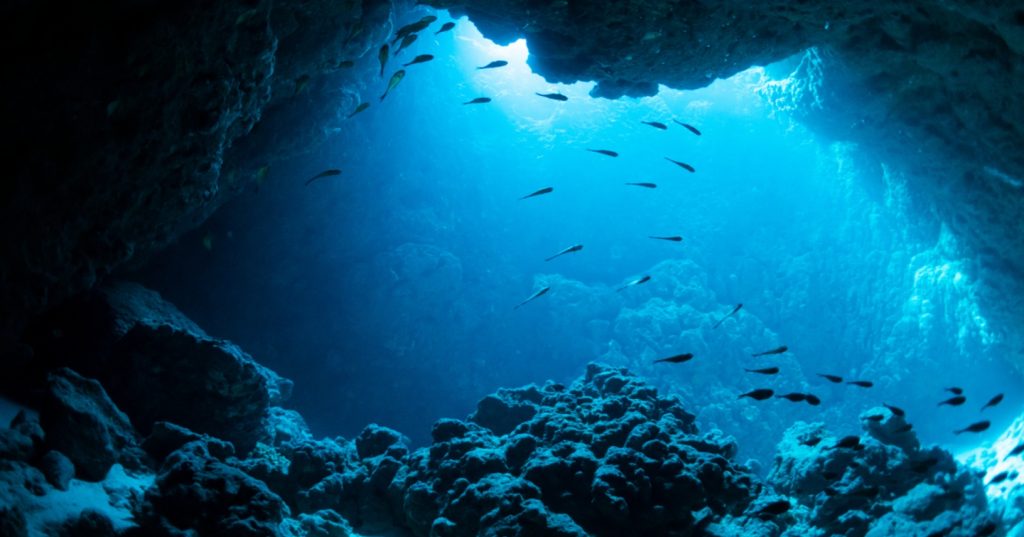Seabed: Emmanuel Macron speaks out against their mining

After initiating a seabed mining strategy and abstaining from the moratorium proposed by the IUCN last year, the head of state has done an about face. Bluff or awareness in the face of international mobilization?
Was it enough to pass through Lisbon, this Thursday, June 30, for Emmanuel Macron to lower the French sails of seabed mining? To believe the words of the Head of State, perhaps. “We must put in place a regulatory framework to put an end to deep sea mining and prohibit any new activity that is dangerous for ocean ecosystems”, declared the President of the Republic, surrounded by the sharks of the Lisbon Oceanarium within the framework of the 2nd United Nations Conference on the Ocean (Unoc). Although pleasantly surprising for many actors in the defense of the environment and biodiversity, this position seems to be surfing on a recent wave of actions in its favor.
An unrewarding Senate report
The first brick in this protest edifice is the report of a parliamentary fact-finding mission presented to the Senate less than a week before the opening of Unoc. After five months of work, the rapporteurs, including the senator for French Polynesia, argue that deciding on the relevance of exploring, or even exploiting, the deep seabed is currently largely premature, given of a cruel lack of knowledge in the matter.
This observation, calling for the greatest precaution, is contrary to the French political will. So far, the state has instead focused on implementing its National Deep Seabed Mineral Exploration and Exploitation Strategy since January 2021 or abstaining from the vote, nine months later, a moratorium on mining to the assembly of members of the International Union for Conservation of Nature (IUCN).
International political mobilization in Lisbon
However, the wind continued to turn in favor of the seabed, from the start of hostilities in Lisbon. Together with the World Wide Fund for Nature (WWF) and the Seabed Conservation Coalition (DSCC), the leaders of Fiji, Samoa and Palau in the South Pacific announced the formation of a new Alliance of country for a moratorium against ocean mining. The formation of this new international coalition comes a week after Chile called for a 15-year moratorium on the development of deep sea mining rules. tipping point for the seabed, the blue heart of our planet, confirms Sian Owen, director of the DSCC. Emmanuel Macron’s words indeed echo the many calls to “press pause” for any ambition to exploit the seabed.”
Another example is the “Global Parliamentary Declaration for a Moratorium on Deep Seabed Mining”. Initiated by Marie Toussaint and Caroline Roose, French MEPs (Greens/ALE), and an elected representative from Vanuatu (archipelago north of New Caledonia), three members of the Global Action group of parliamentarians, it was quickly supported by 102 additional signatories from 37 countries. “We call on Emmanuel Macron to draft a law prohibiting mining in French waters as well as to join the alliance of the states Fiji, Samoa and Palau, declared Marie Toussaint on Twitter. We can no longer content ourselves with words: there is urgency, so we really have to act. And this urgency has a deadline: the summer of 2023.
A year to tip the balance
The International Seabed Authority (AIFM), the UN body responsible for issuing deep-sea exploration permits, is currently drafting a mining code intended to issue and regulate exploitation authorizations for industrial companies sponsored by a state. It seeks to establish it by July 2023, in order to respond to a request from the Republic of Nauru, an island in Micronesia. Time pressure also adds to the opacity of the AIFM, whose next meetings will take place under restricted conditions. This lack of transparency was signed in a letter by the DSCC and 31 other associations.
To become truly legitimate, the opposition to mining now publicly displayed by France in the person of Emmanuel Macron must thus materialize at the level of the board of the AIFM, where it sits. “The noose against the mining of the oceans is tightening and France can no longer remain absent subscribers on this issue, underlines François Chartier, in charge of the oceans campaign for Greenpeace France. The only valid position for Emmanuel Macron, in the extension of the One Ocean Summit in Brest, is to defend this moratorium on the exploitation of the deep sea before the regulatory authority, the AIFM, [in the meetings to come this year]. Any other positioning would only be hypocrisy and game of sleeves.”
Greenpeace, like the association for the protection of the oceans, Bloom, are also wondering about the possible establishment of a “national legal framework necessary to prevent mining in French waters and in particular in the Pacific”. As long as the Head of State has not clarified his statement to this effect, “it is difficult today to give (him) the slightest credit”, nevertheless concludes Greenpeace.